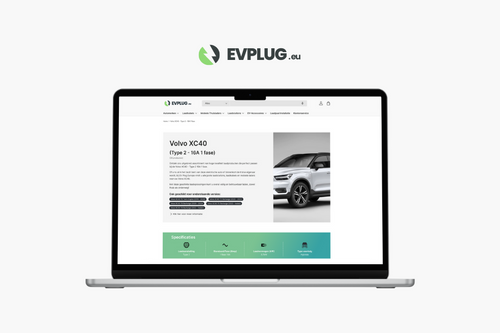Laadpalen voor Thuis en Zakelijk Gebruik
Ontdek onze hoogwaardige laadpalen, ontworpen voor thuisgebruik en zakelijke toepassingen. Met ons uitgebreide assortiment vind je altijd de perfecte oplossing voor het opladen van jouw elektrische voertuig, waar en wanneer je maar wilt.
Choice Guide
Most suitable products for your car.
Onze Laadpalen
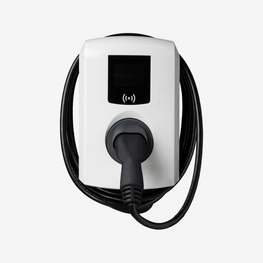
Laadpalen met
Vaste Kabel
Deze laadpalen zijn standaard voorzien van een vaste kabel.
Bekijk laadpalen
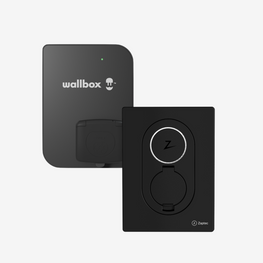
Laadpalen met
Socket
Deze laadpalen zijn standaard voorzien van socket aansluiting.
Bekijk laadpalen
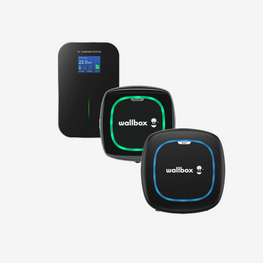
Privé Laadpalen
Deze laadpalen zijn meer geschikt voor thuis/privé.
Bekijk laadpalen
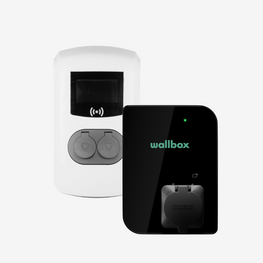
Zakelijke Laadpalen
Deze laadpalen zijn ook zeer geschikt voor zakelijk gebruik.
Bekijk laadpalen




Advies bij het kiezen van een laadpaal
Ontvang deskundig advies om de juiste laadpaal voor jouw behoeften te kiezen. Leer waar je op moet letten bij het selecteren van een laadpaal, zoals laadsnelheid, type aansluiting en vermogen van de meterkast. We helpen je graag bij het maken van de beste keuze voor jouw situatie.
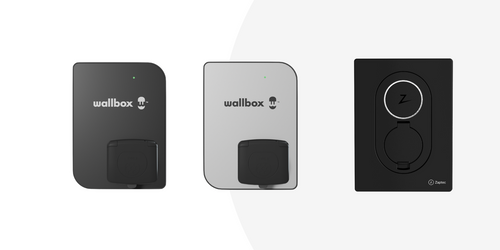
Meest Verkochte Laadstations
Ontdek onze selectie van bestverkochte laadpalen die voldoen aan de behoeften van zowel thuisgebruikers als bedrijven. Met een mix van betrouwbaarheid, snelheid en gebruiksgemak zijn deze laadstations favoriet bij onze klanten en bieden ze een toekomstbestendige oplossing voor elektrisch laden.
Bekijk Alle LaadpalenHoe werkt Dynamic Loadbalancing?
Dynamic Loadbalancing is een slimme technologie die wordt toegepast in laadpalen voor elektrische voertuigen. Het stelt de laadpaal in staat om automatisch de laadsnelheid aan te passen op basis van de beschikbare elektrische capaciteit en de belasting van het elektriciteitsnetwerk op elk moment.
Dynamic Loadbalancing kan niet alleen worden toegepast in laadpalen zelf, maar ook in de meterkast. Door een load balancer in de meterkast te installeren, kan de elektrische belasting van het hele huis of bedrijf worden geregeld, waardoor het laden van elektrische voertuigen efficiënter en betrouwbaarder wordt, zonder het risico op overbelasting van het elektriciteitsnetwerk.
Stel je bijvoorbeeld voor dat er meerdere elektrische voertuigen tegelijkertijd worden opgeladen in een woonwijk. Op drukke momenten kan het elektriciteitsnet overbelast raken, wat leidt tot stroomuitval of verminderde prestaties van de laadpalen. Met Dynamic Loadbalancing kan de laadpaal de laadsnelheid dynamisch regelen, bijvoorbeeld door tijdelijk de laadsnelheid te verlagen wanneer de belasting op het netwerk hoog is, en deze te verhogen wanneer er meer capaciteit beschikbaar is. Hierdoor wordt overbelasting voorkomen en wordt de beschikbare elektrische capaciteit efficiënt benut. Dit draagt bij aan een stabiele werking van het elektriciteitsnetwerk en zorgt ervoor dat het laden van elektrische voertuigen betrouwbaar blijft, zelfs tijdens piekuren.
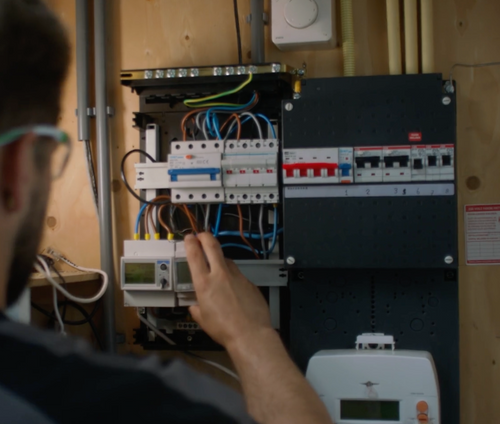
Geschikt voor Alle Automerken en Modellen: Laad Je Elektrische Auto Onderweg
Of je nu een Tesla, Volkswagen, Hyundai of een ander merk elektrische auto rijdt, onze mobiele thuisladers zijn compatibel met alle automerken en modellen. Met hun flexibiliteit en gebruiksgemak bieden ze een betrouwbare oplaadoplossing, waar je ook bent. Bekijk ons assortiment en ontdek de perfecte mobiele thuislader voor jouw elektrische auto!
Overzicht automerken